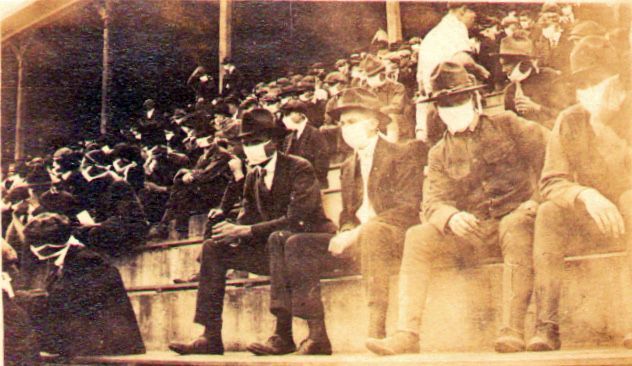During this time of change and uncertainty, it is important to document our experiences so our stories can later be re-told. Because of the importance of this, the Tech Archives have created a new collection of items based around COVID-19. To gain insight into the collection, as well as how items can be donated to it, the Technique sat down with Jody Thompson at the Archives.
We began by discussing the importance of archiving events such as the current pandemic. Thompson shared her personal experience with archived material from over 100 years ago, when the Spanish Flu was running rampant.
“If someone comes to the archives with a photograph, even 100 years from now, this collection can help us retell the story of what happened and sort of give a glimpse into what life was like during this time. Like with the 1918 photograph of students in the stands at Grant Field, we had a lot of people from sports venues and magazines contact us with that photo wanting to learn the history behind that. The archives help us to explain that history and that’s why they are so important.”
Thompson went on to explain that there were many interesting parallels between the Spanish Flu pandemic in 1918 and the current coronavirus pandemic.
“It is interesting to look back at Tech during the Spanish Flu and see some parallels. For example, social distancing was sort of in place even back then and they knew to do that. They also used masks of course, as you can see from that 1918 photograph I mentioned earlier.”
Thompson claimed that many will want to document how students and people on campus, as well as how their experiences were.
“These archives can be used for documenting experiences. Like with the 1918 Spanish Flu pandemic, a lot of people want to write books or even use these things for instruction in the classroom. These items can be used for instruction, research, projects, and as I mentioned before, documentaries and things of that sort.”
The Archives are collecting items with very few restrictions, as long as the item’s creator is the one submitting it. Thompson gave insight into where you can find inspiration for items to donate to the collection.
“On our website you can find some ideas for items to kind of get those creative juices flowing. A professor in Scheller is giving us his last lecture to his medical related business class. So that is a really unique example.”
Although the Archives are collecting a wide array of materials, Thompson said photographs are best for capturing people’s individual experiences.
“Photographs can be from the spring semester or even from over the summer while everyone was home to sort of capture how everyone was feeling and all of the changes being dealt with. I had to go to campus a few weeks ago and was parked in the Peters parking deck. It was so odd to, around lunchtime, only see 4 cars in the parking deck. So just, things like that. The weirdness and how everyone is feeling during this odd time.”
Currently, the collection consists of some photographs such as Thompson’s photo of the empty parking deck, audio recordings from students which express their emotions while moving out of the dorms in the Spring, the Scheller professor’s last lecture, and a student’s project on designs which express their emotions during this time.
“Most of the items we collect we are assuming will be digital so for this collection those items will be available for viewing on our website,” Thompson said.
“You can search based on the type of item or just browse through the whole collection.”
To submit items virtually, students can go to the Archives homepage on their website. Once there, click the “Submit Now” button and upload your items through there. All of the instructions and any other information can be found on the web page in order to correctly document items.
There is currently no cutoff date for when the collection will be accepting items so that the collection can capture how this fall semester will run and what our return to campus will be like.
